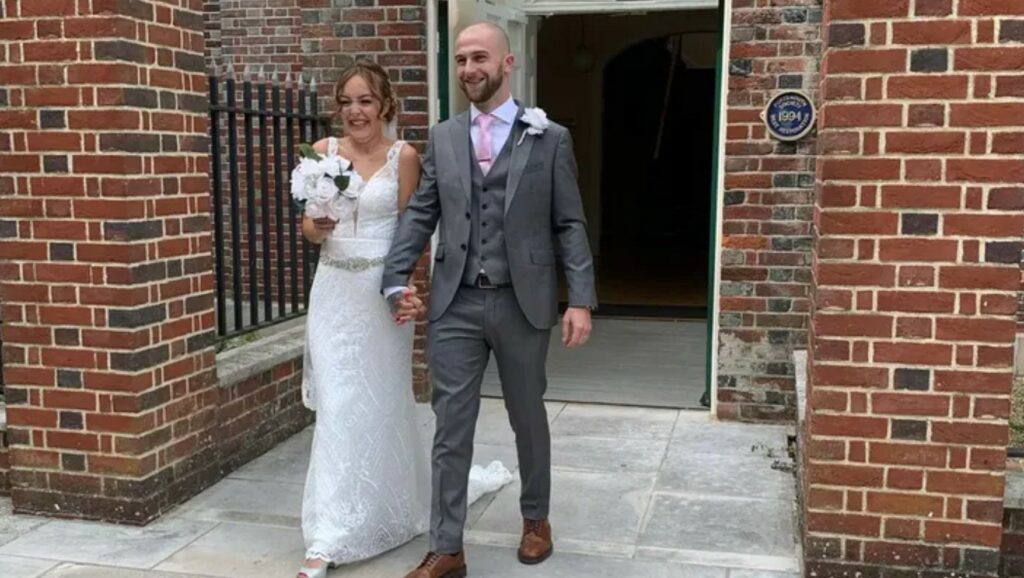Beth Martin, a 28-year-old mother from Portsmouth, UK, tragically died while on holiday in Turkey in April 2025. The trip was meant to be a joyful family vacation with her husband Luke and their two young children. However, within days of arrival, Beth fell seriously ill and was rushed to a hospital in Istanbul. The sudden nature of her death shocked the family deeply.
The case gained international attention when Beth’s body was repatriated to the UK, and her family discovered her heart was missing. This revelation raised urgent questions about what happened during her treatment in Turkey and whether proper medical and legal protocols were followed. Turkish officials remained silent for weeks but recently broke their silence amid mounting pressure from British authorities and the public.

Conflicting Reports on Cause of Death and Missing Organ
Turkish health authorities initially stated Beth died from cardiac arrest caused by multiple organ failure. They said that Beth had not undergone any surgery or invasive procedures during her short hospitalization at Marmara University Pendik Education and Research Hospital. According to the Turkish Ministry of Health, the hospital conducted a preliminary autopsy, but it was non-invasive, meaning no organs were removed.
However, the UK post-mortem report told a different story. When Beth’s body arrived in the UK, British coroners discovered that her heart was missing. This shocking finding was never disclosed to the family or UK officials beforehand. The family insists they never gave consent for any organ removal. Turkish officials continue to deny that any part of Beth’s body was taken or mishandled and maintain the body was returned intact.
The contradictory reports have intensified scrutiny and distrust between the two countries’ authorities. The family has demanded a full and transparent investigation to clarify these serious discrepancies. The missing heart has become a symbol of the broader concerns about patient rights, transparency, and medical ethics.
Medical Treatment and Questions of Negligence
Beth had a known allergy to penicillin, a fact her family stresses was not properly considered during her treatment. There are also reports that the hospital delayed transferring Beth to a private facility better equipped to handle her condition. Such delays may have contributed to the deterioration of her health.

Luke Martin, Beth’s husband, has questioned whether the hospital’s care was appropriate and timely. He has stated that the hospital’s response felt inadequate, given how quickly Beth’s condition worsened. Turkish authorities say they followed standard procedures, but the family remains unconvinced.
The hospital involved is now under formal investigation. Turkish health officials have promised to review all aspects of Beth’s care and the hospital’s internal protocols. The UK’s Foreign, Commonwealth & Development Office is also supporting the family, urging Turkish counterparts to cooperate fully in the inquiry.
Read More: Man Who Visited Every Country Without Flying Names the Worst Spot
Family’s Response and Public Outcry
The Martin family has been left devastated by the loss of Beth. Luke describes the experience as the most traumatic event of his life. Explaining to their children that their mother would not be returning home has been heartbreaking. Despite their grief, the family is determined to seek answers and justice.
A GoFundMe campaign was created to assist with funeral expenses and legal fees related to the investigation. The campaign quickly gained support from people across the UK and beyond, reflecting widespread sympathy and anger over the circumstances of Beth’s death and the missing heart.
Public calls for accountability and greater protections for tourists receiving medical care abroad have grown louder. Many see this tragic case as a cautionary tale about the risks of medical treatment in foreign countries and the importance of clear legal protections.
Ongoing Investigations and International Cooperation
Both Turkish and British authorities have launched investigations into the case. Turkish officials are looking into the cause of Beth’s organ failure and the hospital’s treatment decisions. British coroners are seeking clarity on how and why Beth’s heart was removed without permission.

The Foreign Office is working closely with Beth’s family and Turkish officials to ensure the investigation is thorough and transparent. They have emphasized the need for accountability and respect for patient rights in all healthcare settings.
This case highlights the challenges faced when patients receive urgent medical care abroad. Differences in medical protocols, legal standards, and communication can create confusion and mistrust. It underscores the importance of international cooperation and clear agreements to protect travelers.
Lessons and Broader Implications
Beth Martin’s tragic death raises important questions about patient consent and medical ethics. Her family’s experience shows how vulnerable patients and their loved ones can be when treatment occurs far from home.
Travelers must be aware of the healthcare systems in countries they visit and understand their rights. Families should ensure clear communication about allergies, medical history, and treatment preferences. Documentation and written consent should always be requested when possible.
At the same time, medical facilities treating international patients need clear protocols to respect consent and communicate honestly with families. Governments must work together to create standards protecting patients across borders.
Conclusion
The death of Beth Martin and the mystery of her missing heart has shocked many and raised urgent concerns about medical transparency and patient rights. Her family’s fight for answers is ongoing, highlighting the need for respect, honesty, and accountability in healthcare everywhere.
As investigations continue, people around the world watch closely, hoping this tragic story leads to better safeguards and justice for Beth and others who might face similar circumstances in the future.
Read More: The #1 Heart-Saving Exercise, According to a Cardiologist

